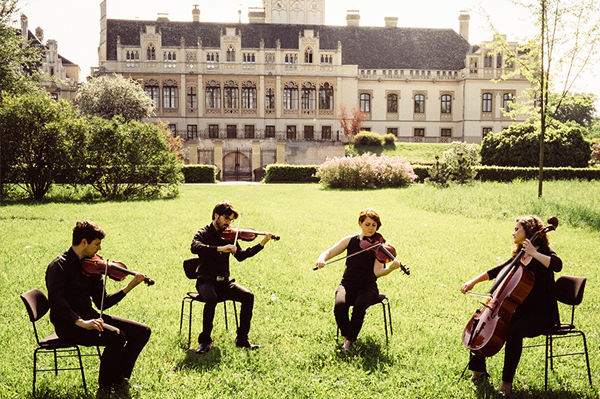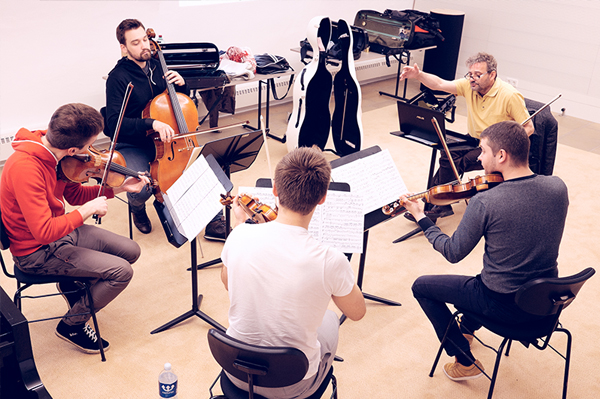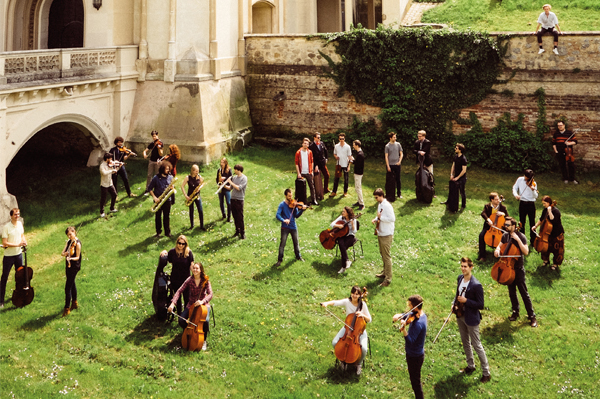Erasmus+ ECMA Next Step
ECMA Next Step is an Erasmus+ strategic partnership programme in chamber music
 ©Gerard Spee
©Gerard Spee
With chamber music's heightened significance both in the labour market and on European concert stages, educators and musicians are now facing new challenges and opportunities to develop and innovate so as to make possible chamber music activities at the highest level.
Goals
One of the main goals of this three-year strategic programme is to ensure the utmost quality of chamber music training and proactively meet the challenges and opportunities that the increasing demand for chamber music entails. This strategic programme thus aims to modernize higher education in the classical music field by strengthening its chamber music component.
ECMA Next Step is a partnership programme that will aim to develop new content for the ECMA training programme in terms of curriculum, mobility, and recognition, as well as to further develop existing chamber music expertise. A special focus will be on the pedagogical knowledge and skills of chamber music instructors in the interest of strengthening chamber music's position in regular training programmes.
 ©Gerard Spee
©Gerard Spee
It will also establish a new organizational structure for ECMA in the form of a joint European Master's Programme for Chamber Music, which will make ECMA a more sustainable effort within the opportunities offered by the Bologna process and the Erasmus+ programme. The programme outcomes will include a new ECMA teaching and learning manual on chamber music, the aforementioned master's programme, and a project evaluation.
The ECMA Next Step application was submitted in 2015 and was granted funding in the amount of EUR 398,789 from the Erasmus+ programme. The project period will be from 1 September 2015 to 1 September 2018.
Project organisation
The steering committee is located in Oslo and at the ECMA office in Vienna. The programme includes two working groups, focusing on teaching and learning and on the joint master's degree programme. The project will be evaluated by an external evaluator, and both students and teachers will participate in the programme until its conclusion on 1 September 2018.
Background
Chamber music training is increasingly becoming a crucial component of performance degree curricula in higher music education institutions all over the world because of the shift from permanent forms of employment with fixed contracts to employment situations where musicians are self-employed and combine different professional activities in the form of portfolio careers. Opportunities in the traditional areas of employment such as orchestras and opera houses are growing scarcer, while chamber music is experiencing a heightened degree of significance on the international concert stage.
 ©Gerard Spee
©Gerard Spee
In the 21st century, chamber music is also increasingly being viewed as a vital pedagogical tool for the training of broadly applicable skills important for the musician in the 21st century. In chamber music, teamwork, peer-learning, and reflective practicing are essential basic principles, and mastering the associated skills will support musicians in preparing themselves to be reflective practitioners in their future portfolio careers.
While the response of music-centred institutions of higher education to these new realities has been slow, the ECMA consortium views chamber music as an ideal tool with which to modernize present-day higher education in classical music. By adapting their curricula, these institutions can make the necessary adjustments. This requires the development of an elite training programme that can gather the most talented people and the most advanced methods and knowledge in the interest of supporting a European chamber music scene of the highest possible quality. Strong chamber music programmes based at institutions can play an important role in the mainstreaming of chamber music and its artistic and pedagogical benefits to standard training programmes in music.
Members of the ECMA Working Group Learning & Teaching
- Universität für Musik und darstellende Kunst Wien
Peter Schuhmayer (CHAIR)
- Norges musikkhøgskole
Are Sandbakken
- Koninklijk Conservatorium
Asdis Valdimarsdottir
- Lietuvos Muzikos ir Teatro Akademija
Indrė Baikštytė
- Royal Northern College of Music
Laura Jellicoe
- Fondazione Scuola di Musica di Fiesole Onlus
Antonello Farulli
Members of the ECMA Working Group on Joint Master's
- Norges musikkhøgskole
Kjetil Solvik (CHAIR)
- Universität für Musik und darstellende Kunst Wien
Johannes Meissl
- Koninklijk Conservatorium
Wim Vos / Martin Prchal
- Lietuvos Muzikos ir Teatro Akademija
Zita Abramavičiūtė
- Royal Northern College of Music
Jeremy Young
- Fondazione Scuola di Musica di Fiesole Onlus
Antonello Farulli
- Grafenegg Kulturbetriebsgesellschaft mbH
Magdalena Klamminger
- Association Festival Pablo Casals
Michel Lethiec
